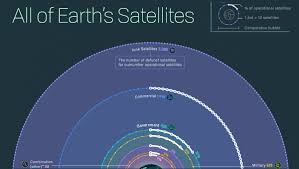
Breaking News
 Atlanta to host first fully automated on-demand public transit system
Atlanta to host first fully automated on-demand public transit system
 Podcast - Dave Benner - Epstein, Empire & Surveillance: Unmasking the Global Cover-Up
Podcast - Dave Benner - Epstein, Empire & Surveillance: Unmasking the Global Cover-Up
 The Original 'John Ag' - Silver and Gold News
The Original 'John Ag' - Silver and Gold News
 XAI Launches Grok 4.20 and it Has 4 AI Agents Collaborating
XAI Launches Grok 4.20 and it Has 4 AI Agents Collaborating
Top Tech News
 New Spray-on Powder Instantly Seals Life-Threatening Wounds in Battle or During Disasters
New Spray-on Powder Instantly Seals Life-Threatening Wounds in Battle or During Disasters
 AI-enhanced stethoscope excels at listening to our hearts
AI-enhanced stethoscope excels at listening to our hearts
 Flame-treated sunscreen keeps the zinc but cuts the smeary white look
Flame-treated sunscreen keeps the zinc but cuts the smeary white look
 Display hub adds three more screens powered through single USB port
Display hub adds three more screens powered through single USB port
 We Finally Know How Fast The Tesla Semi Will Charge: Very, Very Fast
We Finally Know How Fast The Tesla Semi Will Charge: Very, Very Fast
 Drone-launching underwater drone hitches a ride on ship and sub hulls
Drone-launching underwater drone hitches a ride on ship and sub hulls
 Humanoid Robots Get "Brains" As Dual-Use Fears Mount
Humanoid Robots Get "Brains" As Dual-Use Fears Mount
 SpaceX Authorized to Increase High Speed Internet Download Speeds 5X Through 2026
SpaceX Authorized to Increase High Speed Internet Download Speeds 5X Through 2026
 Space AI is the Key to the Technological Singularity
Space AI is the Key to the Technological Singularity
 Velocitor X-1 eVTOL could be beating the traffic in just a year
Velocitor X-1 eVTOL could be beating the traffic in just a year
Visualizing All Of Earth's Satellites: Who Owns Our Orbit?

Today, as Visual Capitalist's Therese Wood details below, there are seemingly countless benefits and applications of space technology. Satellites, for instance, are becoming critical for everything from internet connectivity and precision agriculture, to border security and archaeological study.
Space is Open for Business
Right now, there are nearly 6,000 satellites circling our tiny planet. About 60% of those are defunct satellites - space junk - and roughly 40% are operational.
As highlighted in the chart above, The Union of Concerned Scientists (UCS), determined that 2,666 operational satellites circled the globe in April of 2020.
Over the coming decade, it's estimated by Euroconsult that 990 satellites will be launched every year. This means by 2028, there could be 15,000 satellites in the skies.



